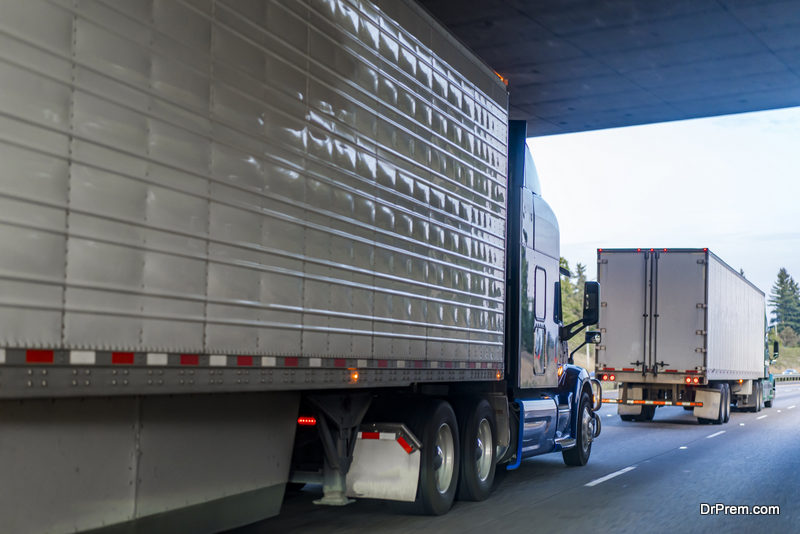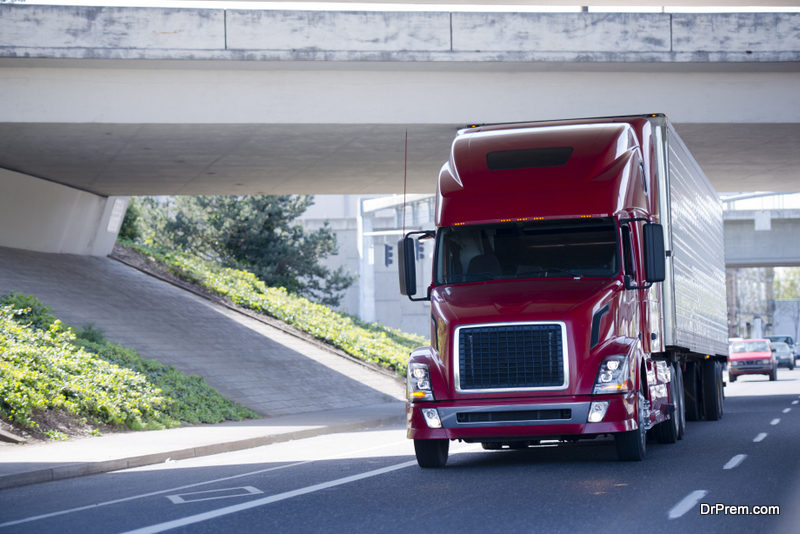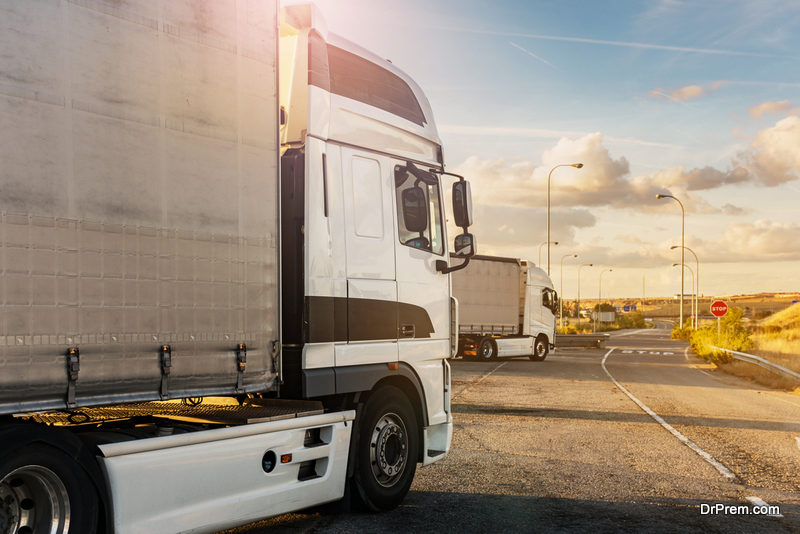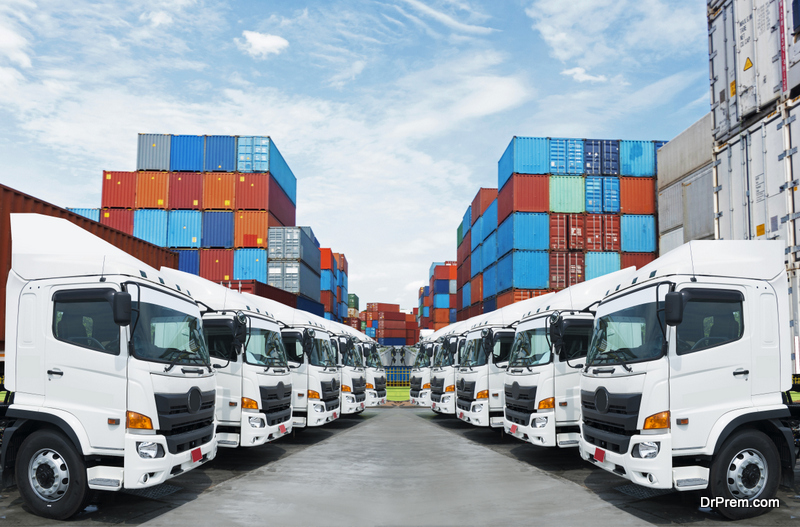Operating a commercial fleet in a more environmentally friendly way can pose a challenge to fleet managers, be it a fleet of trucks or of mercedes electric vans. By its very nature, a fleet is going to use large amounts of fuel as its purpose is to transport goods or services from one location to another. However, there are ways to reduce the environmental impact of a commercial fleet.
Install telematics system
 One way which has proved particularly successful is the installation of telematics systems to enable fleet managers to track the activity of their vehicles. By producing data about the journey vehicles are taking, fleet managers can analyze where improvements can be made.
One way which has proved particularly successful is the installation of telematics systems to enable fleet managers to track the activity of their vehicles. By producing data about the journey vehicles are taking, fleet managers can analyze where improvements can be made.
Driver Behavior
There are two key areas where improvements can be made as a result of analyzing telematics data. The first is driver behavior. One type of telematics system which can be installed in commercial vehicles is an in-cab coaching system. Not only does this system accurately record journey information, but it also records individual driver behavior and provides drivers with instant feedback while on the road.
Instant Feedback
 By providing instant driver feedback, in the form of audio and visual signals, drivers can self-correct any behavior which is deemed dangerous or wasteful regarding fuel. Actions which are highlighted to the driver to combat heavy fuel usage include speeding, heavy acceleration and engine idling. All of these areas have been proven to contribute to higher fuel usage, and by alerting drivers to them, they can be reduced. If drivers are unable to self-correct their behavior to reduce fuel usage, fleet managers can use the data from the in-cab systems to construct training programs to specifically improve certain areas of driving.
By providing instant driver feedback, in the form of audio and visual signals, drivers can self-correct any behavior which is deemed dangerous or wasteful regarding fuel. Actions which are highlighted to the driver to combat heavy fuel usage include speeding, heavy acceleration and engine idling. All of these areas have been proven to contribute to higher fuel usage, and by alerting drivers to them, they can be reduced. If drivers are unable to self-correct their behavior to reduce fuel usage, fleet managers can use the data from the in-cab systems to construct training programs to specifically improve certain areas of driving.
On-Cab Coaching
There is also the added benefit of improving road safety through the installation of on-cab coaching. Speeding, heavy acceleration, harsh braking and sever cornering are all contributors to road accidents. This can be particularly disastrous for commercial vehicles. Many are large lorries or vans which could seriously or fatally injure another road user or pedestrian if they were involved in an accident with a commercial vehicle.
Route analysis
 The second area in which telematics data allows fleet managers to improve the environmental impact of their fleet is through route analysis. The data collected from the vehicle tracking systems can be uploaded to a central system which collates all the data from vehicles within a fleet. By doing this, fleet managers can easily see the routes each vehicle is taking. This data can be collected over time, so fleet managers can also compare current routes to ones previously used. There are existing softwares like Route4Me Route Optimization Software that enables automated route analysis in creating time-efficient and fuel-efficient routes. By conducting route analysis, fleet managers can determine if their vehicles are taking the most economically efficient route to their destination. Drivers may be taking what is, in theory, the faster and shorter route using main roads and motorways. However, at specific times of the day, these roads can become congested, and the traffic can sometimes come to a standstill. Because of this, the more efficient route may be a smaller road which is a slightly longer distance but because of less traffic, actually uses less fuel. A fleet manager can then implement these more efficient routes at times when they become necessary to save fuel across a company fleet.
The second area in which telematics data allows fleet managers to improve the environmental impact of their fleet is through route analysis. The data collected from the vehicle tracking systems can be uploaded to a central system which collates all the data from vehicles within a fleet. By doing this, fleet managers can easily see the routes each vehicle is taking. This data can be collected over time, so fleet managers can also compare current routes to ones previously used. There are existing softwares like Route4Me Route Optimization Software that enables automated route analysis in creating time-efficient and fuel-efficient routes. By conducting route analysis, fleet managers can determine if their vehicles are taking the most economically efficient route to their destination. Drivers may be taking what is, in theory, the faster and shorter route using main roads and motorways. However, at specific times of the day, these roads can become congested, and the traffic can sometimes come to a standstill. Because of this, the more efficient route may be a smaller road which is a slightly longer distance but because of less traffic, actually uses less fuel. A fleet manager can then implement these more efficient routes at times when they become necessary to save fuel across a company fleet.
Vehicle Tracking
By utilizing vehicle tracking, fleet managers can not only gain a more in-depth knowledge of the workings of their fleet but better understand how its vehicles are using fuel. By doing this, they can identify areas such as driver behavior or inefficient routes, and implement solutions. These solutions can reduce the fuel usage of a commercial fleet, and therefore reduce the environmental impact and make the fleet more efficient. From a business point of view, this is beneficial as it not only improves their environmental impact but also can save the company money on fuel costs.
Article Submitted By Community Writer




